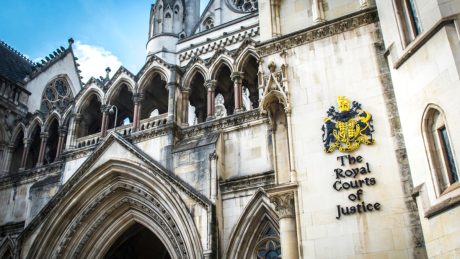The Court of Appeal has today ruled that the courts can stay proceedings to order parties in dispute to engage in alternative dispute resolution (ADR), including mediation. Stewarts acted pro bono for Civil Mediation Council (CMC), the Chartered Institute of Arbitrators (Ciarb) and the Centre of Effective Dispute Resolution (CEDR), who intervened in the case.
As part of the ruling in Churchill v Merthyr Tydfil County Borough Council, the Court of Appeal has confirmed that comments made by Lord Justice Dyson in Halsey v Milton Keynes General NHS Trust were obiter and therefore not binding on the lower courts; and that ordering compulsory mediation does not breach article 6 of the European Convention on Human Rights, the right to a fair trial.
The staying of proceedings for ADR is dependent on not impairing the “very essence” of a party’s right to proceed to a judicial hearing, and being proportionate to settling the dispute quickly and fairly at a reasonable cost.
In his judgment (with which Baroness Carr and Lord Justice Birss agreed), the Master of the Rolls, Sir Geoffrey Vos, made clear that it was not the place of the Court of Appeal to set out fixed principles as to what factors will be relevant to determining whether a court should stay proceedings for non-court based dispute resolution. This should be left to the discretion of the judge dealing with the matter. This decision, allowing the court to approach each case on its own facts, is a sensible one.
The court ruled that in the particular circumstances of Churchill v Merthyr Tydfil, a stay of the proceedings would not be imposed but that the parties should consider agreeing a temporary stay for alternative dispute resolution, with mediation as an example offered.
CMC, Ciarb and CEDR were represented by partners Ian Gatt KC and Elaina Bailes and associate Matt Caples of Stewarts instructing Edwin Glasgow CBE KC and Kelly Stricklin-Coutinho of 39 Essex Chambers.
Elaina says: “The Court of Appeal’s ruling is a welcome development for dispute resolution in England and Wales, recognising that alternative dispute resolution is an integral part of the justice system. We are proud to have worked on a pro bono basis for CMC, Ciarb and CEDR in this pivotal case. The court’s decision should not only help parties resolve their disputes faster and with less expense, but also save time for the courts and justice system.”
Background
The CMC, Ciarb and CEDR jointly intervened in Churchill with the aim of overturning Halsey and demonstrating joint commitment to ensuring parties to a dispute have the appropriate level of information and access to both mediation and to qualified professional mediators.
In 2021, the Civil Justice Council (CJC) published its report on “Compulsory ADR” in which it concluded in favour of mediation and that compulsion to use (alternative) dispute resolution is lawful and should be encouraged. Mediation in the UK and abroad was given another boost in May 2023 when the UK Government signed the Singapore Convention on Mediation (SCM).
In July 2023, the UK Government announced that all small claims in the County Court issued under the standard Part 7 procedure of the Civil Procedure Rules would be referred to the HM Courts and Tribunals Service’s Small Claims Mediation Service. All organisations continue to work with the UK Government on issues including the regulation of mediation and how mediation can be integrated effectively into the civil justice process.
Client quotes
Rebecca Clark, Chair of the CMC says: “As a charity committed to promoting resolution of conflict, we are delighted by this judgment, in which the Court has expressly acknowledged the benefits of mediation for parties who want to resolve their differences cheaply and quickly. Mediation is now where it should be – firmly embedded within the civil justice system. I would like to thank Stewarts and Edwin Glasgow CBE KC and Kelly Stricklin-Coutinho of 39 Essex Chambers who all acted on a pro-bono basis to ensure that the Court had all the evidence it needed in making this decision.”
Catherine Dixon MCIArb, CEO of Ciarb says: “This judgment confirms that integrating mediation into the civil justice system does not breach human rights. Private dispute resolution is an integral part of an effective justice system. Providing parties with access to mediation and other dispute resolution processes supported by qualified dispute resolution professionals, creates more opportunities for parties to reach a resolution appropriate for them. It has been a pleasure to work with CMC, CEDR, Stewarts and Edwin Glasgow CBE KC and Kelly Stricklin-Coutinho of 39 Essex Chambers on this ground-breaking case and I thank them for their wisdom, tenacity and support.”
James South, Chief Executive of CEDR says: “We will now enter a new era of positive change. When justice is looked at from the perspective of the disputants, they want their dispute resolved in a cost-effective and fair way, ensuring they have the opportunity to be heard, and that resolution meets their commercial and personal needs. Mediation can more readily provide this more expansive view of access to justice and this judgment gives the courts the tools to actively encourage this by allowing them for the first time to order parties to mediate, if in their discretion they consider it reasonable to do so”.
Additional case information
Stewarts instructed Edwin Glasgow CBE KC and Kelly Stricklin-Coutinho from 39 Essex Chambers as barristers in the case.
Stewarts and counsel acted pro bono for CMC, Ciarb and CEDR, some of the several interveners in this case.
The Appellant, Merthyr Tydfil CC was represented by in house solicitors and Michel Kallipetis KC, and Maya Chilaeva of Quadrant Chambers and Iain Whitwick of Unity Street Chambers and the Respondent James Churchill was represented by McDermott Smith Solicitors and Justin Bates and Tom Morris of Landmark Chambers.
You can find further information regarding our expertise, experience and team on our Commercial Litigation page.
If you require assistance from our team, please contact us or alternatively request a call back from one of our lawyers by submitting this form.
Subscribe – In order to receive our news straight to your inbox, subscribe here. Our newsletters are sent no more than once a month.







